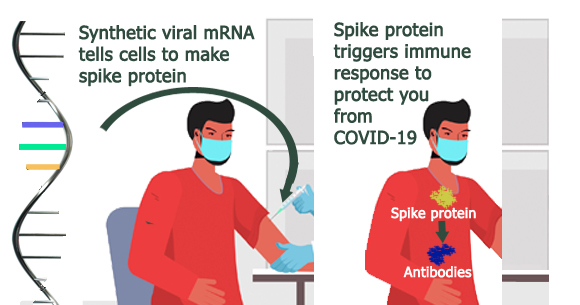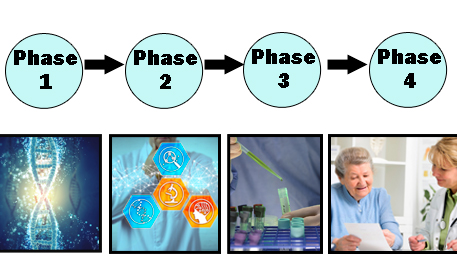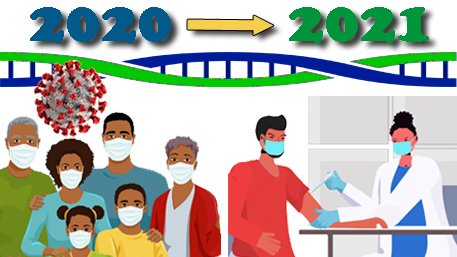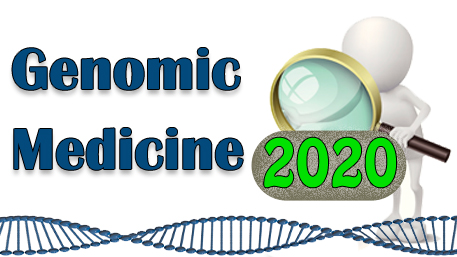Genomics and Precision Health Blog – Archive Posts
Host Genomics and COVID-19: One Year Later

Unprecedented global research collaborations in human genomics provide a model for research in response to a pandemic. Early in the COVID-19 pandemic, we discussed the role of research on human genetics in the investigation of SARS-CoV-2 infection and outcomes. We now know more about the wide variation in host response, from asymptomatic infection to Read More >
Posted on byApplications of Digital Tools for Precision Public Health in the COVID-19 Era: Where Are We?

Two recent systematic scoping reviews explore the use and limitations of digital tools in public health surveillance and their applications to the pandemic response Digital health tools offer increasing potential for substantial benefits to medicine and public health. In clinical practice, digital applications include personal wearable devices, devices within the body, and sensors that can Read More >
Posted on byTier 1 Guidelines on Family-Based Screening for Hereditary Hemochromatosis

An important function in public health genomics is to identify evidence-based genomic applications that can save lives and prevent disease. In maintaining the PHGKB Tier Coded Guidelines database, we routinely look for Tier 1 applications of genomic testing strategies that have evidence-based guidance supporting implementation in specific clinical scenarios. We only consider recommendations that have Read More >
Posted on bymRNA COVID-19 Vaccines: An Incredible Feat of Genomic Technology

In December 2020, less than a year after the SARS-CoV-2 virus was identified, two COVID-19 vaccines manufactured by Pfizer-BioNTech and Moderna were approved for use in the United States under an Emergency Use Authorization by the U.S. Food and Drug Administration (FDA). Never has a U.S. vaccine been developed so quickly, and genome technology made Read More >
Posted on by 2 CommentsHow Common is Familial Hypercholesterolemia?

Familial Hypercholesterolemia (FH) is a genetic condition that leads to high blood levels of low-density lipoprotein cholesterol, also known as LDL-C or “bad cholesterol.” Most people with FH have heterozygous FH, meaning they have only one FH-causing mutation, but in rare cases, a person can have homozygous FH, meaning they have FH-causing mutations in both Read More >
Posted on byNext Generation Sequencing to Diagnose Primary Immunodeficiency

Primary immunodeficiencies (PI) are a group of more than 400 genetic disorders that alter the ability of the immune system to fight off infection and affect 1 out of 1,2001 births in the United States. Patients with PI are at increased risk of recurrent infections, certain malignancies, and death. Initial identification of PI in a Read More >
Posted on byPublic Health Impact of Digital Health: Reinventing the Wheel

“Digital health has potential to improve health management, but the current state of technology development and deployment requires a “buyer beware” cautionary note.” (Perakslis and Ginsburg, JAMA, 2020) In a recent JAMA viewpoint, Perakslis and Ginsburg summarize the current state of digital health and discuss approaches in evaluating benefits, risks and value of these technologies. Read More >
Posted on byLabs on FHIR: Sharing Genetic Test Results*

The use of genetic testing is becoming increasingly routine in patient care. For example, tests are available to check newborns for genetic disorders, screen would-be parents for carrier status, inform cancer care, and evaluate potential pharmacogenetic associations. However, the laboratories that perform these tests face many challenges that keep them from being able to return Read More >
Posted on by2020: A Challenging Year of Progress for Genomics and Precision Public Health

It is time to wrap up an eventful 2020 which unfortunately was dominated by the COVID-19 pandemic. From January 2020 through November 2020, we saw a major increase in visits to our website (> 2.6 million views, compared to 2 million views in 2019 and 1.2 million views in 2018). In our year end blog, Read More >
Posted on byGenomic Medicine Year in Review 2020: Population-wide Implementation Research Has Arrived

Advances in genomic medicine continue at a steady pace. In a December 2019 paper, The Genomic Medicine Working Group of the National Advisory Council for Human Genome Research of the National Human Genome Research Institute (NHGRI) identified 10 papers with the most significant advances in the field. In our 2019 end of the year blog. we featured 5 Read More >
Posted on by

